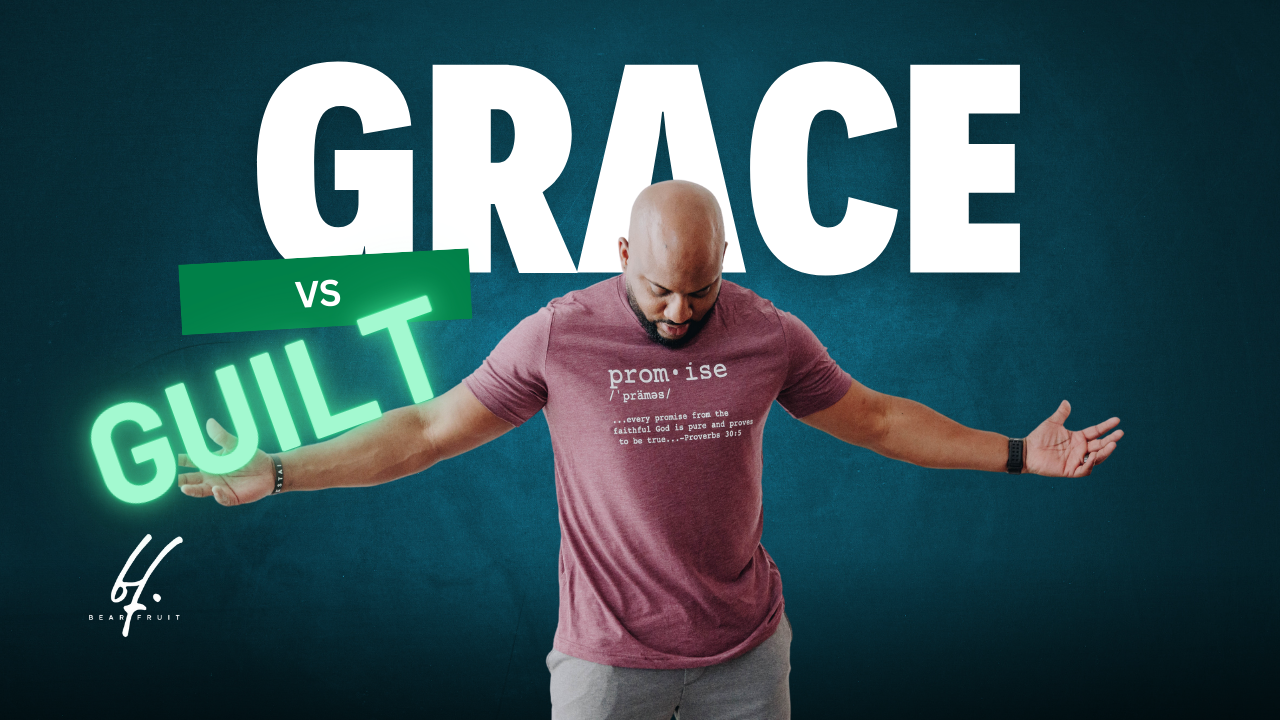Do you ever feel trapped between God's infinite grace and your own persistent guilt? You're not alone. This tension is a common struggle for many Christians, but the good news is that God's Word offers us powerful tools to navigate this challenge and grow in our faith.
In our latest Bear Fruit video, we explore four effective Bible study methods that can help you embrace grace and overcome guilt. Let's take a closer look at each of these methods and how they can transform your understanding of God's love and forgiveness.
Method 1: Word Study
Understanding the true meanings of 'grace' and 'guilt' in Scripture can profoundly impact our faith walk.- Grace (Greek: charis) means unmerited favor. Ephesians 2:8 reminds us, "For it is by grace you have been saved, through faith—and this is not from yourselves, it is the gift of God".
- Guilt (Greek: katakrima) refers to a legal decision of guilty in a criminal case, often with the ensuing punishment understood. However, Romans 8:1 assures us, "Therefore, there is now no condemnation for those who are in Christ Jesus".
Method 2: Character Study
Biblical characters who experienced both grace and guilt can teach us valuable lessons:
David: Despite his grave sins with Bathsheba, David received God's grace. His heartfelt prayer in Psalm 51:10, "Create in me a pure heart, O God, and renew a steadfast spirit within me," shows us the path to restoration.
Peter: After denying Jesus three times, Peter was consumed by guilt. Yet, Christ's grace restored him, as evidenced in Mark 16:7, "But go, tell his disciples and Peter, 'He is going ahead of you into Galilee. There you will see him, just as he told you.'"
Method 3: Topical Study
The Bible offers rich insights on overcoming guilt through grace:- God's grace is sufficient: "But he said to me, 'My grace is sufficient for you, for my power is made perfect in weakness.'" (2 Corinthians 12:9)
- Confession leads to forgiveness: "If we confess our sins, he is faithful and just and will forgive us our sins and purify us from all unrighteousness" (1 John 1:9)
- Grace empowers righteous living: "For the grace of God has appeared that offers salvation to all people. It teaches us to say 'No' to ungodliness and worldly passions, and to live self-controlled, upright and godly lives in this present age" (Titus 2:11-12)
Method 4: Cross-Reference Study
Connecting different passages can deepen our understanding of grace and guilt:
Romans 6:14 states, "For sin shall no longer be your master, because you are not under the law, but under grace". This pairs beautifully with Galatians 5:1, "It is for freedom that Christ has set us free. Stand firm, then, and do not let yourselves be burdened again by a yoke of slavery". Together, these verses illustrate how grace frees us from both sin and guilt.
Conclusion
As we've seen, the Bible provides us with powerful tools to embrace grace and overcome guilt. By applying these study methods to Scripture, we can deepen our understanding of God's love and live in the freedom He intends for us.
Which of these methods resonates most with you? We encourage you to try them out in your personal Bible study time. Remember, God's grace is always greater than our guilt, and His Word is a constant source of truth and comfort.
For a more in-depth exploration of these Bible study methods, be sure to watch our full video [insert link]. May you be blessed as you continue to grow in grace and knowledge of our Lord Jesus Christ.



